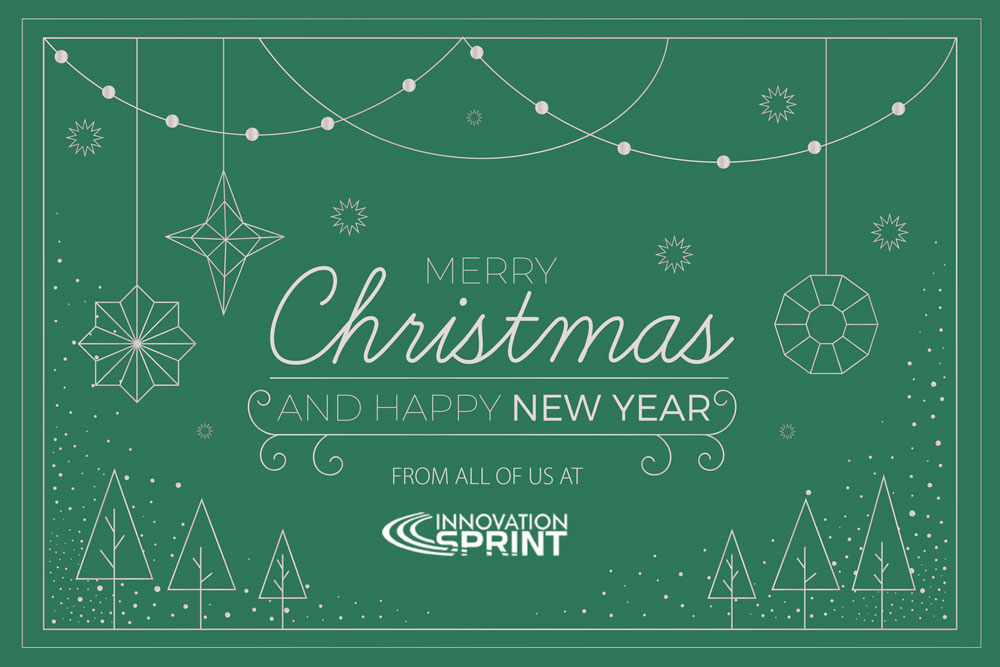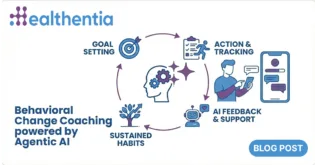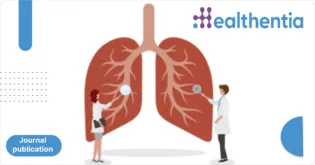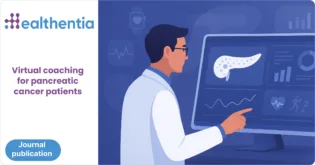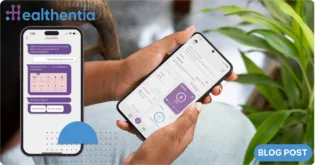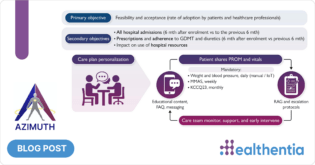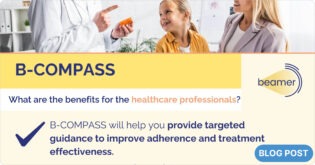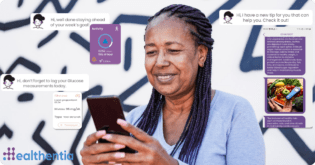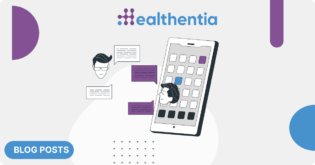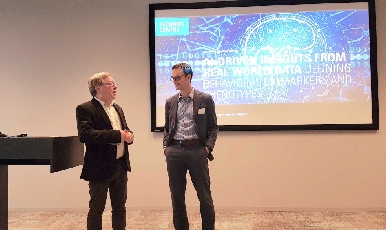
End of 2020 and so many things have happened. We could not have been happier to close the year with our annual Sprint event on Trending topics….and what a topic this year.
With the explosion of patient-related data from genomics, electronic health records, wearables, and other Real World Data sources, AI/ML is becoming essential to make sense of this data, derive evidence-based insights and answer some of healthcare’s most challenging questions.
The workshop
In the workshop held and co-organized by the University of Twente and Innovation Sprint, we saw AI-driven Insights shifting from a novelty to necessity in many applications throughout the day and how it is becoming a transformational force in the field of healthcare and the Life sciences.
We kicked off with welcoming notes by Prof.dr.ir. Hermie Hermens (University of Twente) & Dr. Sofoklis Kyriazakos (Innovation Sprint) following by an inspiring keynote from Christina Kyriakopoulou from the Digital Research Department of the European Commission, (DG-RTD) that stressed the focus of the EC on this domain and the available relevant calls for innovation.
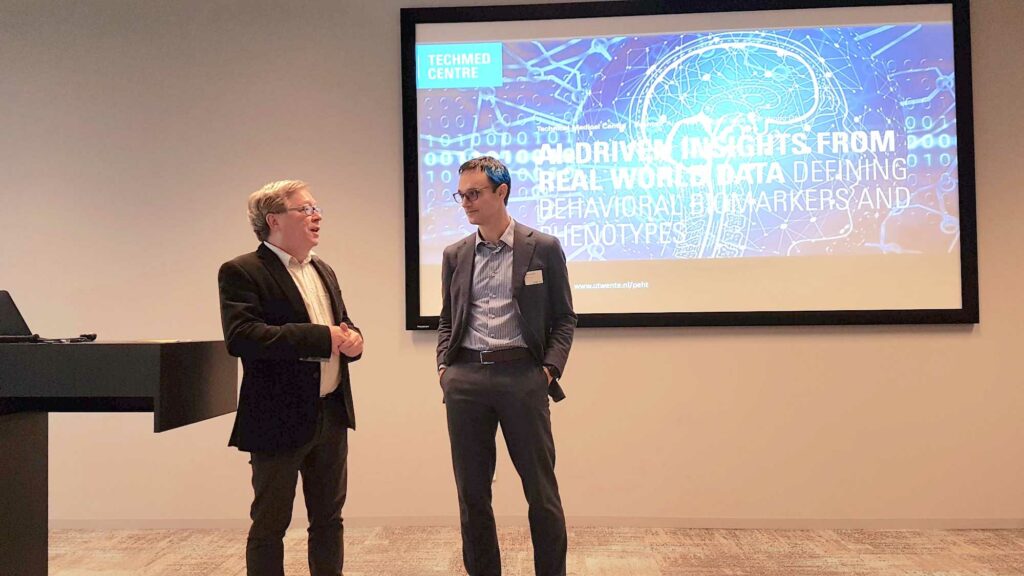
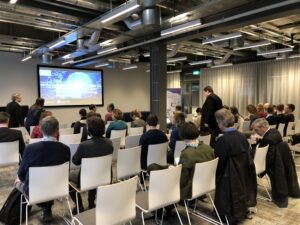 .
.
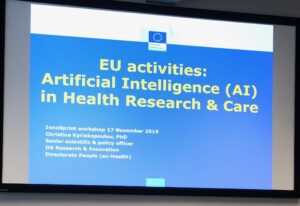
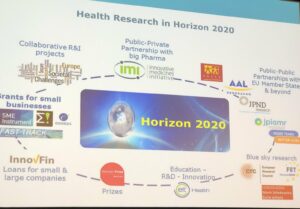
Next up was a talk on Modeling a treatment protocol with little clinical data by Rom Langerak (University of Twente) where we saw how it is possible to model a universal patient and treatment protocol.
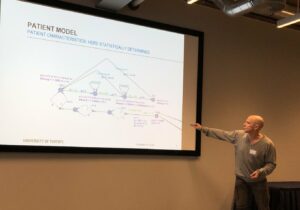
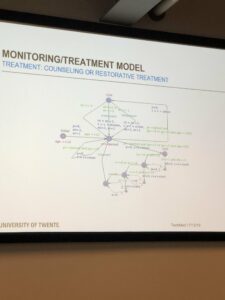
Start Up Talks
Following, we had two startup talks, BowheadHealth.com by Francisco Diaz-Mitoma jr that presented their great solution for personalized wellness collecting Real world data from patients and empowering them to be the owners of their data using a blockchain ledger. Next up Healthentia.com from Sofoklis Kyriazakos and Alfredo Cesario & Aristodemos Pnevmatikakis (Innovation Sprint) on Defining Biomarkers & Behavioral Phenotypes and whether they can predict outcomes.
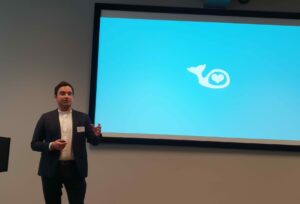
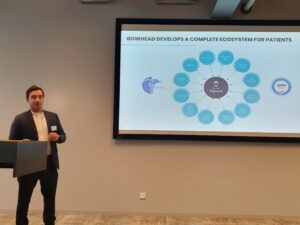
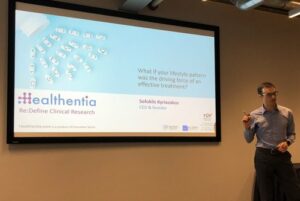
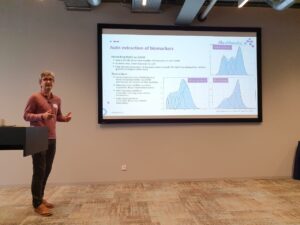
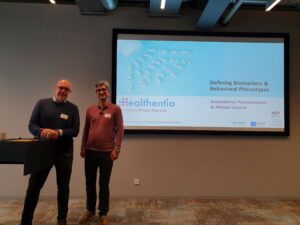
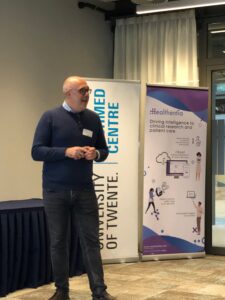
Medical device regulation gave a big shock the last few years in the software companies as it can be considered a Medical Device. We can never have enough analysis on the parameters that include or exclude you from this requirement for commercialization so Kyun Thibaut (COVARTIM) gave us an enlightening talk on MDR impact on Software as Medical Devices highlighting the small letters and offering applied examples.
Break
A quick break for lunch at the amazing lounge area of the Techmed department to get some energy.
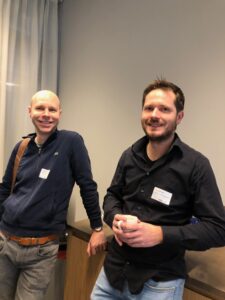

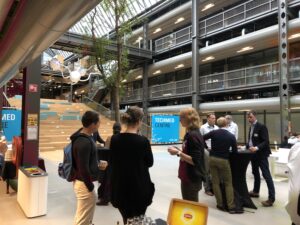
Sessions
The next session started with the ambitious Generator project by Prof. Vincenzo Valentini (Policlinico Gemelli / UCSC) on the use of AI to create customized bots like (bacterium.bot) and help specific areas of the hospital using EHR data to offer guidance and insights to the clinical personnel.
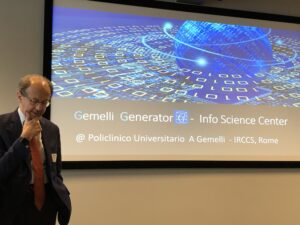
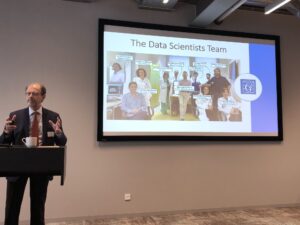
Project presentation
Coming up two more projects of a collaboration between Innovation Sprint and the Gemelli Hospital on AI-driven studies, APACHE (cervical cancer) by Prof. Vincenzo Valentini (Policlinico Gemelli / UCSC) and PADAWAN (Non-Alcoholic Fatty Liver Disease) by Luca Miele (Policlinico Gemelli / UCSC)
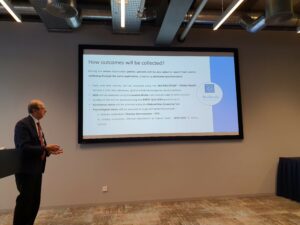
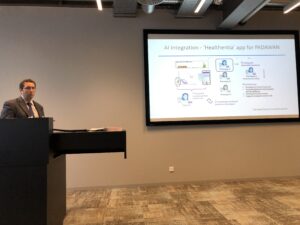
Next up very interesting approaches on the use of AI for treatment for disease and patient profiling by Annemieke Witteveen (University of Twente) Towards holistic profiling and personalized cancer treatment, Immune-mediated inflammatory diseases and their treatment using Machine Learning algorithms by Jonas Kuiper (University of Utrecht) and Intelligent triage for low back pain by Wendy Oude Nijeweme – d’Hollosy (University of Twente)
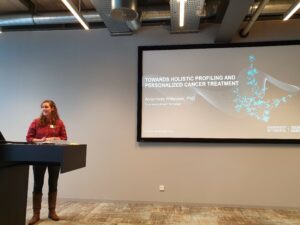
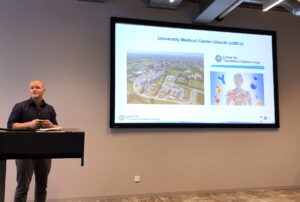
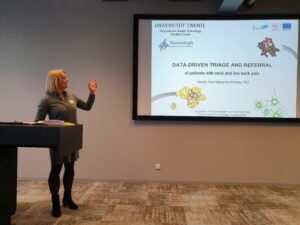
R&D H2020 projects
Following we invited R&D H2020 projects that have AI use in several applications to pitch the vision of their projects. (10 minutes each)
- H2020 EU-STANDS4PM, Marc Kirschner (FZ-Juelich)
- H2020 REPO-TRIAL, Harald Schmidt (Maastricht University)
- H2020 INFINITECH, Christiane Grundloh (RRD)
- H2020 COUCH, Harm op den Akker (RRD)
- H2020 PANACEA, Aristodemos Pnevmatikakis (Innovation Sprint)
- H2020 CO-ADAPT, Konstantina Kostopoulou (Innovation Sprint)

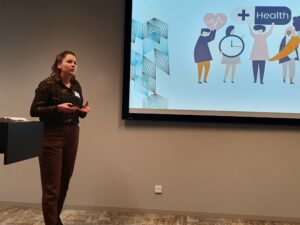
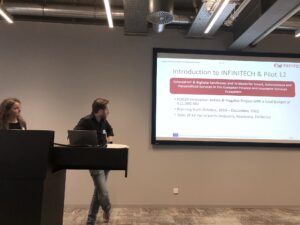
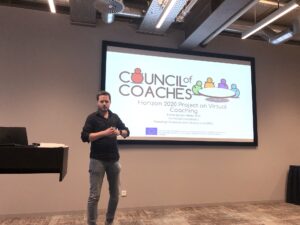
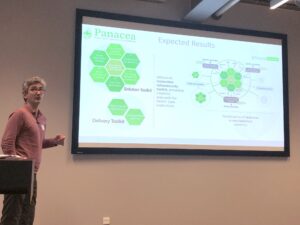
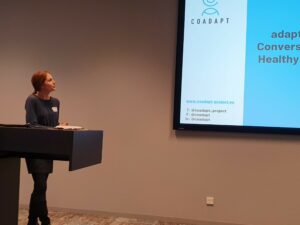
Closure
We closed the workshop with a panel discussion on How AI can be integrated into Life Sciences and Healthcare moderated by Konstantina Kostopoulou.
So as closing remarks, we saw the use of AI to build models identifying characteristics or actions, to generate a hypothesis, predict future outcomes, inform decision and process optimization. We asked the panel participants their views on two big challenges acting as obstacles in the adoption of AI strategies in organizations and that is the required change management in processes and mentality of the people involved but also the technical safety and liability of these AI applications in the case of a potential fault and wrong prediction.

However challenging, AI adoption is the new reality for Healthcare market and we will see more and more adoptions in the near future but also many legal and ethical framework to support it, that are now missing.
What a great ending to a full year by thinking and speaking for AI-driven Insights !!! 2020 Here we come !!!
We wish everyone Happy Holidays !!
( Source of Blog post www.innovationsprint.eu)
